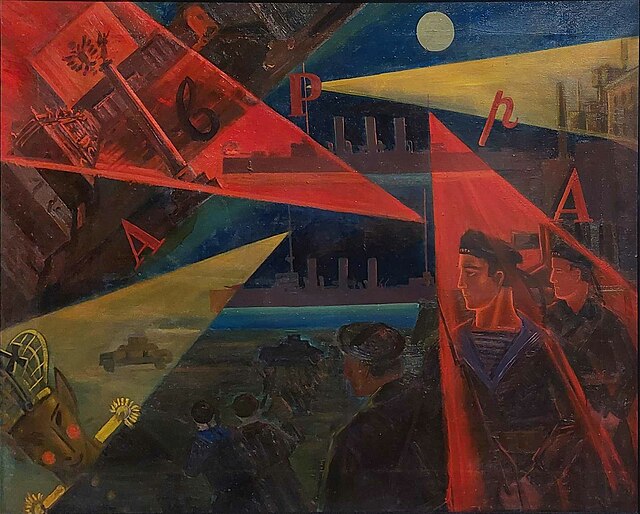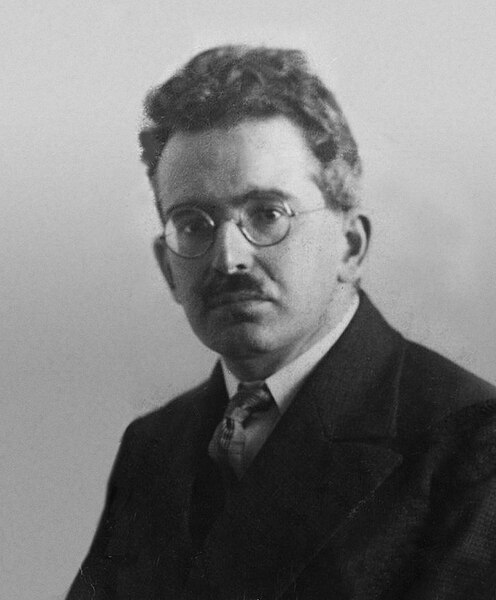Situationist International
The Situationist International (SI) was an international organization of social revolutionaries made up of avant-garde artists, intellectuals, and political theorists. It was prominent in Europe from its formation in 1957 to its dissolution in 1972. The intellectual foundations of the Situationist International were derived primarily from libertarian Marxism and the avant-garde art movements of the early 20th century, particularly Dada and Surrealism. Overall, situationist theory represented an attempt to synthesize this diverse field of theoretical disciplines into a modern and comprehensive critique of mid-20th century advanced capitalism.
Danish painter, sculptor, ceramic artist, and author Asger Jorn, founding member of the Situationist International.
Internationale situationniste
In the arts and in literature, the term avant-garde identifies an experimental genre, or work of art, and the artist who created it; which usually is aesthetically innovative, whilst initially being ideologically unacceptable to the artistic establishment of the time. The military metaphor of an advance guard identifies the artists and writers whose innovations in style, form, and subject-matter challenge the artistic and aesthetic validity of the established forms of art and the literary traditions of their time; thus, the artists who created the anti-novel and Surrealism were ahead of their times.
Avant-garde cinema: The Love of Zero (1928), a short film directed by the artist Robert Florey.
Political revolution has influenced both the topic and form in The Overthrow of the Autocracy, a Soviet avant-garde painting.
The cultural provocation of avant-garde art: Fountain (1917) by Marcel Duchamp. (Alfred Stieglitz)
In "The Work of Art in the Age of Mechanical Reproduction" (1935), Walter Benjamin addresses the artistic and cultural, social, economic, and political functions of art in a capitalist society.






